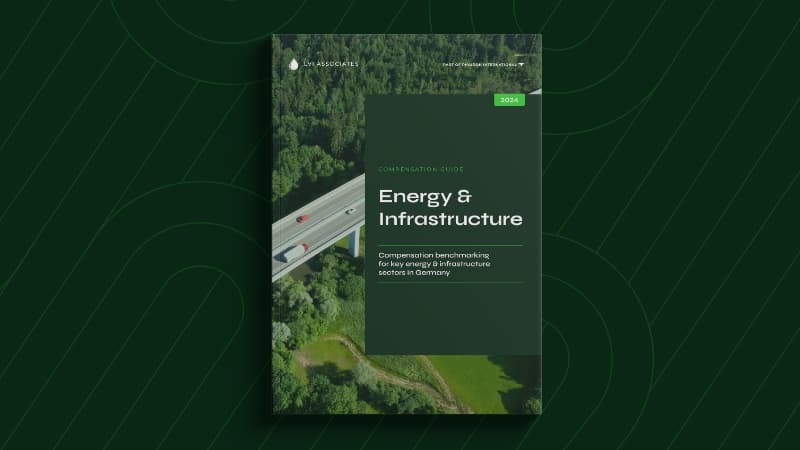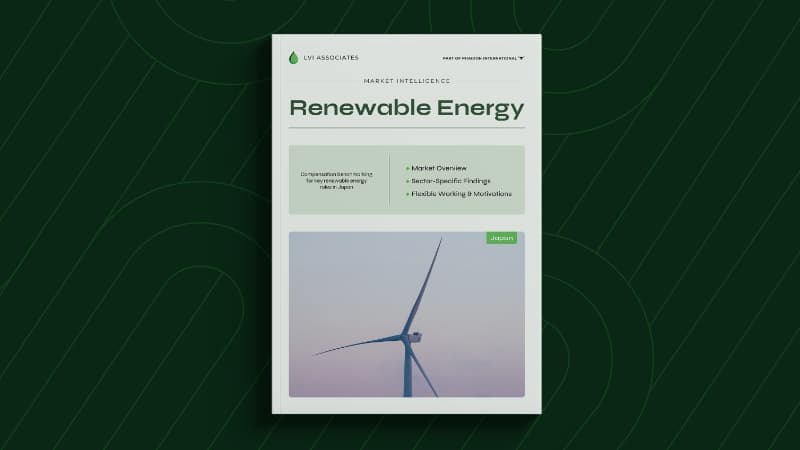Industry Insights
Welcome to Industry Insights by LVI Associates
Powered by our extensive global talent expertise, data-driven intelligence, and deep understanding of business needs across key energy and infrastructure sectors, our industry insights are designed to keep you ahead of the rest.
Here, you'll find exclusive insights into the latest talent trends, strategic hiring developments, and emerging career opportunities across energy and infrastructure.

Featured Report
Powering the Future of Data Centers
As global data consumption rises, competition for specialists to build and run data centers is surging, and talent shortages are deepening. This report explores key global and regional talent trends and hiring strategies, helping you to secure the expertise you need or seize your next career opportunity in one of the world's fastest-growing sectors.

Compensation Guides
How competitive is your compensation package? Explore guides covering a vast range of energy and infrastructure roles around the globe, based on real placement data, providing you with the information you need to make hiring or career decisions with confidence.

Market Intelligence
Based on comprehensive surveys from our network, these reports bring you in-depth market analysis and actionable advice, indispensable for both hiring managers optimizing strategies and professionals looking to benchmark against peers.

Market Updates
Gain the advantage with expert insights from LVI Associates. Our talent specialists share guidance on the latest hiring trends and industry developments, helping firms attract top talent and professionals plan their next move.

Hiring Advice
From talent trends to recruitment best practices, our hiring advice offers expert insights to equip energy and infrastructure organizations with the knowledge to hire smarter and attract, build, and retain stronger teams across every key business function.

Success Stories
Every great hire starts with the right strategy. Take a look at our case studies to see how we support businesses and professionals through their toughest talent challenges, and learn how our expertise drives real growth.

Career Advice
The energy and infrastructure hiring landscape is constantly evolving – stay ahead with our career advice. Discover expert tips covering everything from resume optimization to salary negotiations and role-specific guidance, positioning yourself for success.
FEATURED BLOG
Career Advice
8 Essential Steps to Propel Your Career in Energy & Infrastructure
Navigating a successful career in energy and infrastructure requires a strategic and proactive approach. By continuously evaluating and enhancing your skills, defining clear career objectives, and staying in tune with industry innovations, you position yourself for sustained growth and success. Read this blog to find out more.

Find the talent you need
Get in touch with one of our talent specialists, who can offer bespoke and tailored guidance on hiring for your objectives and resourcing plans.
Looking for a new role?
Explore career opportunities with top energy and infrastructure organisations, from established utilities to cutting-edge renewable energy startups.
